Community activists in two separate fights for light and air — as well as grass, trees and contextual development — in Downtown and Lower Manhattan enjoyed initial success in the courts, but have seen setbacks after appeals by City Hall.
Speaking of light, air, grass and overall livability, according to a recent report by Village Preservation, Manhattan has among the highest housing density on the planet — even more so than places we might think of as more densely constructed, like Tokyo, Lagos and Hong Kong.
In the case of the Elizabeth Street Garden in Little Italy, a four-year legal battle to save the beloved green oasis from destruction for a new housing project will culminate soon. Although the gardeners won at State Supreme Court, the city appealed and won last year. Now, after hearing arguments on May 15, the Court of Appeals, the state’s highest court, will issue its ruling in 30 to 60 days, meaning either this month or the next.
In the meantime, a Housing Court judge has ruled the city can evict the monument-festooned garden — which sits on a city-owned plot — simply based on the technicality that the city has not renewed its lease. The judge at least stayed the eviction until Sept. 10, pending the other case’s outcome.
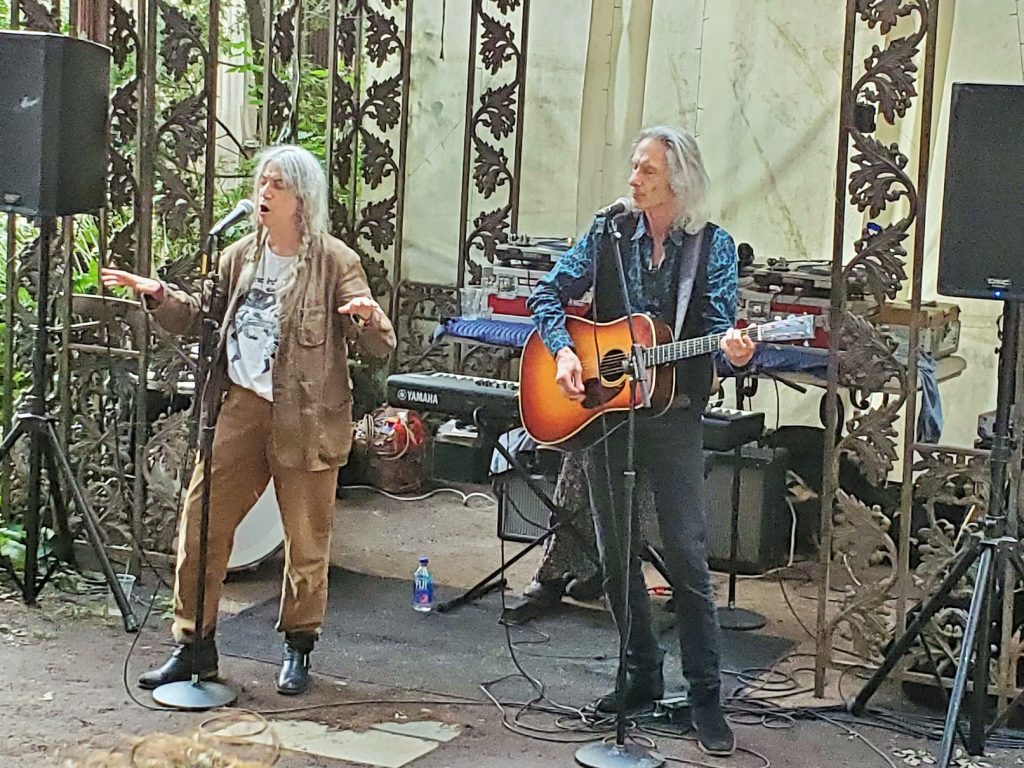
The arguments for preserving the garden are myriad. For starters, it’s a beautiful, tranquil destination in an otherwise concrete-and-asphalt-strewn neighborhood sorely lacking in green space — in fact, a community with an open-space ratio far below the citywide average or recommended guidelines for such.
In fact, as famed civil-rights attorney Norman Siegel recently argued before the Court of Appeals panel of judges, the garden plays a vital role in combating one of the major scourges humanity faces today — climate change. Meanwhile, the city only shrugs that the planned housing project there, Haven Green, would emit some greenhouse gasses. But what about the sheer impact of losing 20,000 square feet of lush green space in the heart of the city?
In addition to the many creatures and trees the garden supports, it is a certified monarch butterfly way station — in other words, an established and important natural habitat.
In addition to butterflies, on any given day now you will also find flocking to the garden local residents and tourists, workers from nearby businesses, local firefighters and traffic agents, many bringing in a lunch to eat in this rejuvenating space, others coming for free yoga, poetry, movies and more.
As legendary urban planner Jane Jacobs said, a community needs spaces where people can mingle, unwind, recharge. Studies prove spending time in a leafy park like Elizabeth Street Garden confers health benefits.
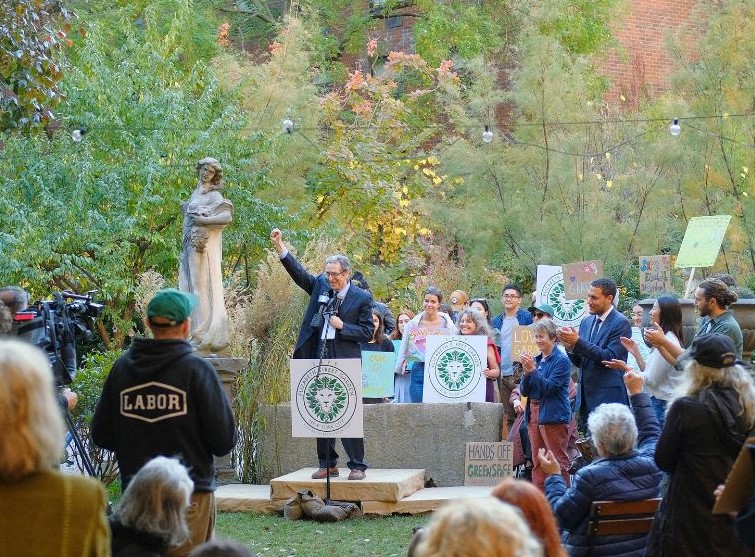
The lawsuit argues the city had to “take a hard look” at the impacts of the garden’s destruction and the new housing’s construction to determine if a proper environmental impact statement, or E.I.S., was needed. That “hard look” was never done. The need for an E.I.S. is abundantly clear.
And going back to the start of this mess, let’s not forget that the targeting of the Elizabeth Street Garden for a housing project for seniors — including gay seniors and the homeless — was hashed out in a classic “backroom deal” by former Councilmember Margaret Chin and the Bloomberg administration. In short, Community Board 2 never even had a chance to weigh in on the idea — yay or nay — before it was already suddenly a fait accompli. And this was all (allegedly) because Chin could not achieve the likely never-realistic goal of getting 100 percent of the housing slated to be built at Essex Crossing to be affordable.
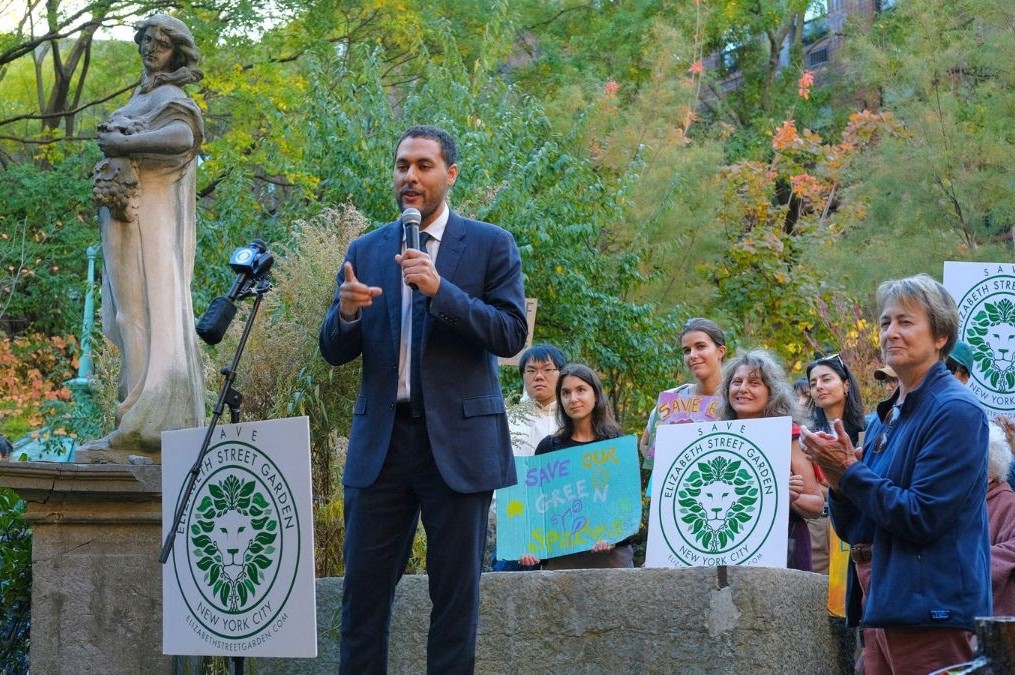
As has been well documented, C.B. 2 and the gardeners subsequently worked to find an even better alternative spot where far more affordable housing could be built — namely, the city-owned water-shaft site at Hudson and Clarkson Streets. Yet, the cynical response from City Hall and Chin was simply to earmark that West Side site for housing, too, while stubbornly refusing to compromise and save the Elizabeth Street Garden. The community made a good-faith effort to identify an alternative site. Contrast that with the city’s original plan, done in bad faith — a secret, backroom deal. Hopefully, the Court of Appeals will recognize the inherent unfairness of this situation and rule in favor of the community and the garden.
To lose the garden would be a travesty and a real blow to the community. On top of that, in an era of climate-change crisis, not to save this beautiful and highly used green space is shockingly tone deaf and sends exactly the wrong message. Again — five times as much affordable housing can be built at Hudson and Clarkson Streets. For the city to reject this excellent compromise solution backed by the overwhelming majority of the surrounding community is a real slap in the face.
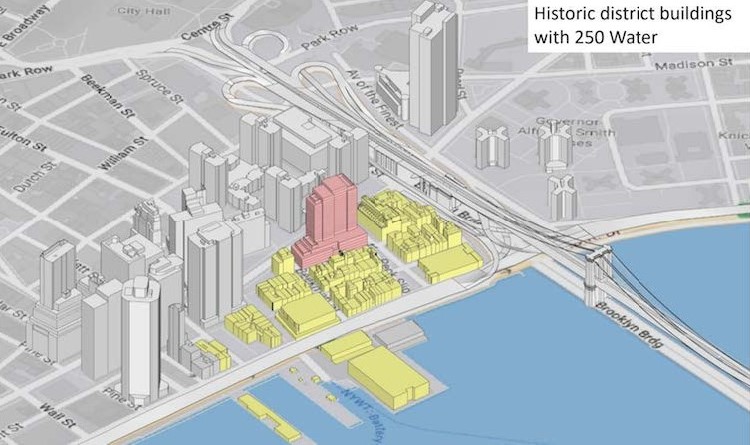
Meanwhile, nearby, activists battling to block the Howard Hughes Corporation’s mega-tower on an open-air parking lot at 250 Water St. within the South Street Seaport Historic District have been denied leave to appeal their lawsuit to the Court of Appeals. The coalition says it is now weighing “other strategies to create a better outcome.”
This was a clear case of the city’s Landmarks Preservation Commission dropping the ball. Obviously, the enormous development project is inappropriate for the low-scale historic district. More to the point, the plaintiffs turned up overwhelming evidence of improper coordination — a massive number of e-mails, coaching for hearings — between the former de Blasio administration and H.H.C. that helped push the project through.
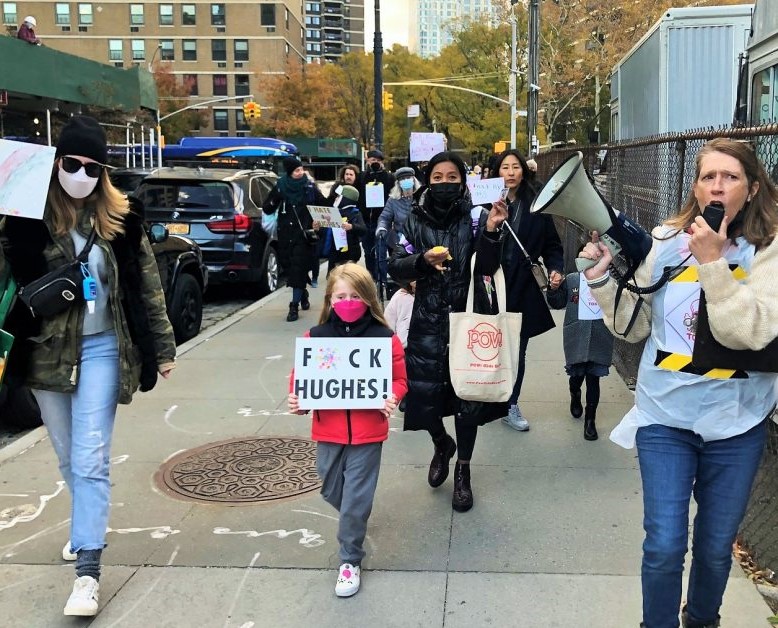
As the South Street Seaport Coalition said in a statement, City Hall, in a pattern seen in recent years, has “repeatedly stymied” community battles against development projects, leaving activists no choice but to resort to the legal system. Something must give.
It’s time for nothing less than a land-use revolution — and, no, we’re not talking about the administration’s City of Yes, which is essentially a gimme for developers that has Open New York types drooling with anticipation.
What we need is radical change. What we need is a more community-centric approach toward development.

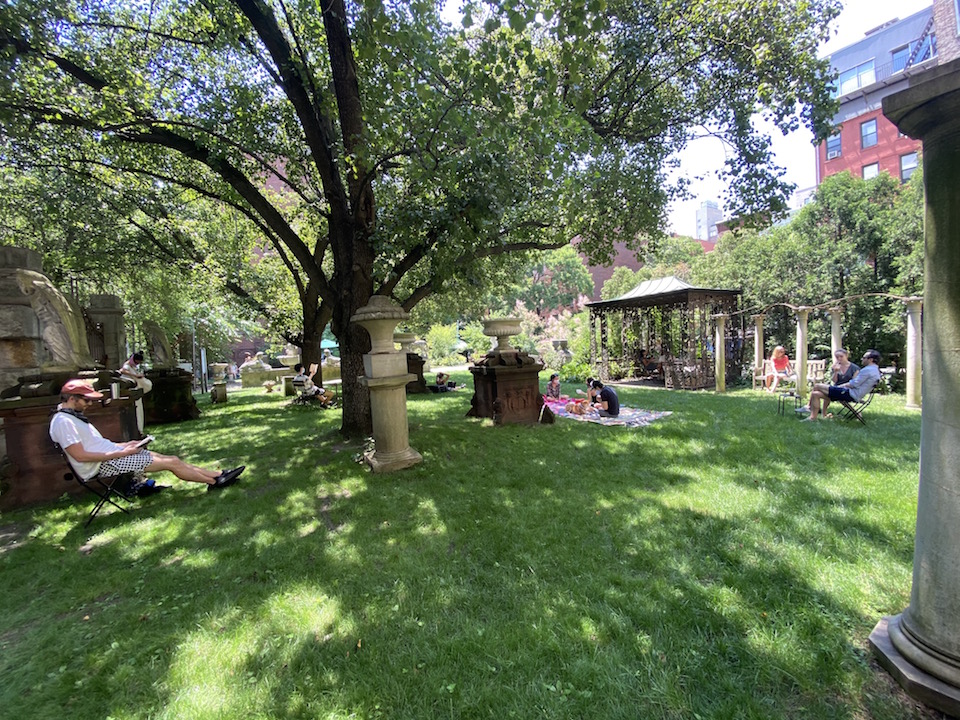
I hate the thought of losing the Elizabeth Street Garden. Such a lovely spot! Since a better spot has been found for housing, what’s the problem of going there? Who’s in line to profit from destroying the garden?
And why do we have to have that out-of-proportion tower in the Seaport area?
By the time you see SAVE THE … it’s usually too late. It’s a waste of time to use reasonable, environment and people-based arguments. Unless we reroute/sic greedy developers onto an alternate site that’s more profitable/desirable, I despair of saving the garden. Nevertheless, keep making noise. Make them look bad!
“Garden and Seaport — battling inappropriate development projects”…
another inappropriate proposed development project that community activists are currently fighting is the proposed nakba of NYCHA Elliott Chelsea Fulton Houses, please be aware, dear neighbors and friends!